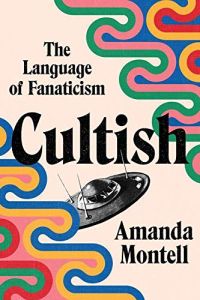Join getAbstract to access the summary!

Join getAbstract to access the summary!
Amanda Montell
Cultish
The Language of Fanaticism
Harper Wave, 2021
What's inside?
Think you’re immune to cults or cult-like thinking? Think again.
Recommendation
In this bestselling take on human nature, language scholar Amanda Montell serves up a thought-provoking reinterpretation of the power of cults. If you get up at 5 a.m. to work out with your favorite trainer, for example, or stay late to please your visionary boss, you might belong to a cult, just not an extreme one. Montell acknowledges the wide gap between moving to Jonestown and sweating at the gym, but, she argues that the messaging, language and appeal of cult-like groups can cross all lines.
Summary
About the Author
Language scholar Amanda Montell also wrote Wordslut: A Feminist Guide to Taking Back the English Language. In 2021, she created and cohosted the podcast Sounds Like A Cult.




















Comment on this summary